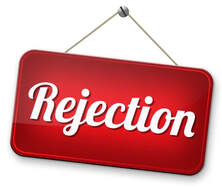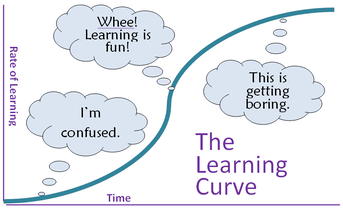|
One of the sad realities of poetry is that virtually every poem misses more readers than it hits. Even famous poems, like "The Raven" or "Nothing Gold Can Stay," impress only a fraction of the readers who encounter them. When it comes to poems posted online, or poems published in journals, the odds of engaging the average reader are steep. Most readers don't finish poems, and even when they do read them all the way to the last line (without skipping), there's usually a point of disengagement before the last line falls. They may technically read all the way to the end, but their thoughts are on who did or didn't text back, or how the cat's doing, as they're reading. Way back in the candle-lit nineteenth century, Mr. Poe insisted that the longest any poem could be and still hold a reader's attention was 100 lines. That was a century before the Internet and social media. These days, many readers jump right from the title to the last line. This seems cruel to poets, and in some ways, it is a cruel reality, but it simply reflects the fact that, for most people, thirty-seconds of attention is a lot. Even from someone who's blood-related to you, or personally mentioned in your poem. A part of every reader is waiting for your poem to fail. It's a form of confirmation bias, which means the default assumption is: if you were any good, you'd already be famous. Since you're not, you must be bad. Then if anything is off in the poem, it confirms this initial idea. And by "anything" I mean grammar errors, typos, cliches, weak images, dull language, or glitchy rhythm and meter. The instant a reader (or editor) spots something "off" in your poem, they're going to scroll away, swipe away, or flip the page. They won't feel cheated, because poems are almost always free, but they'll stand confident in the idea that your work is average or below average and all they'll likely remember is the part that failed. AI can't (yet) help you with this issue. People don't read AI's poems, either. So what can you do? Two things. The first is to accept the reality of confirmation bias. The second is to eliminate all obvious errors in your poems. This means putting more time into each poem. It means setting new poems aside for a while and editing and polishing them after you've had a chance to get some distance. There's simply no other way. To be honest, this is very good news. There seems to be something in human nature that shrugs off the notion of "toss away" poetry, or disposable poems. I'm not saying that all poems should, be weighty or profound, but I think it's a very good thing that some part of us still expects something special each time we read a new poem. There's no shame in wanting artistry from an artist! So, the way to stop the scroll is to stop your own scroll and spend more time on each of your poems to be sure you don't provide convenient escape routes for readers. If you'd like some feedback for your poetry or a bit of help polishing your words, just click one of the buttons below. Or email @ [email protected] Categories All
0 Comments
Each time you write, submit, or publish a poem, you risk rejection. Believe it or not, rejection from editors is not the worst kind of rejection. It's rejection from readers (and critics) that stings the most. When an editor rejects your poetry, you can at least comfort yourself by submitting the same poems elsewhere.
If a poem is published or posted and people slam or ignore it, getting a mulligan can be problematic. Not impossible, just challenging... Another thing is: you're going to get rejected no matter who you are. You could be Shakespeare and you'd still get your fair share of rejections. So what do you do? Well, I've had hundreds if not thousands of rejections and I can offer the following insights: 1) Expect to get them. Just like you accept getting sand in your stuff when you go to the beach. 2) Never answer them. Not privately by messaging the editor, or publicly, by whining to your social media circle. You can post an update as in "I was rejected today..." But resist the urge to defend yourself or criticize. 3) Take a close look at your bio and cover letter. Can you make improvements? If you have a dull bio (I do!) or a rambling (or sloppy) cover letter, it will likely influence editors' decisions. 4) If a poem has been rejected by more than 5 venues, see if it may need improving. Sometimes it's just a single line or even a single word that's putting people off. 5) Move on. Resubmit. 6) Only submit your best, most fully polished work. When an editor asks to see more work from you, they really mean it. If they don't make that specific request, you shouldn't read much else into the rejection. It's important to guard against the hurt of rejection because you can really get sidetracked by the glums. I'll talk about how to deal with online rejection, social media hate, and critics in a future post. Tally Poems Written: 311 Submissions: 51 Rejections: 21 (13 tiered) Acceptances: 0 Poem written today: "N/A" Still mixing song, "Coming Home." If you need a hand revising and polishing: 1) Have me do it for you! Click the "Poem Polisher" button below. I've helped lots of poets. 2) Use my 7 Secrets of Poetry pdf as a guide for revision. Being a poet means engaging in a process of lifelong learning. No matter what you do, or how hard you work and study, you'll never master the art of poetry. But writing poems can help you master yourself. Believe it or not, this has something to do with the topic of rejection. When people ignore your work, reject your work, or criticize it, you're on the road to learning. Usually that road is very painful and involves a lot of frustration, soul-searching, maybe even swearing of vengeance. The point is, you'll be a different person for the experience no matter what. Whether you're a better person is up to you. The important thing to remember is that being a poet means embracing growth and change, both in your writing and in your life. Writing poems can help you connect with others and that's a wonderful feeling. But never forget the power that writing poems has to help you connect with you. Both who you are now, and who you might become. Tally Poems Written: 311 Submissions: 51 Rejections: 21 (13 tiered) Acceptances: 0 Poem written today: "n/a" Mixing music track "Coming Home." If you need a hand revising and polishing: 1) Have me do it for you! Click the "Poem Polisher" button below. I've helped lots of poets. 2) Use my 7 Secrets of Poetry pdf as a guide for revision. Categories All |



